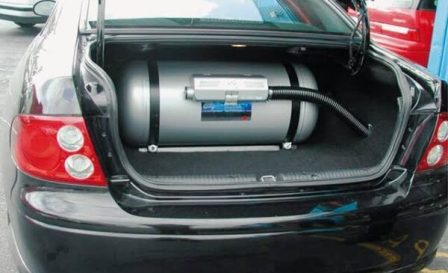The Federal Government of Nigeria has, in the last one year, injected not less than $250 million into the Compressed Natural Gas (CNG) scheme.
The Chief Executive Officer (CEO), Presidential Compressed Natural Gas Initiative (PCNGI), Engr. Michael Oluwagbemi disclosed this at the Nigeria Auto Journalists Association’s (NAJA) Annual Training/Capacity Building Workshop held in Lagos recently.
Delivering a keynote address at the event themed: “theme: ‘CNG/LPG/EV Initiative: Challenges, Sustainability, Opportunities, Alternatives to Fossil Fuels in Nigeria”, he said the Federal Government is also targeting about one million conversion vehicles by the end of 2027.
According to Oluwagbemi, who was represented at the occasion by the agency Strategic Project Adviser, Mr. Olayinka Rufai, ‘’apart from the injection of the $250 million in the past 12 months, the government was also collaborating with financial institutions for easy access by motorists.
He mentioned organizations like InfraCorp, Bank of Industry (BoI) and Development Bank of Nigeria (DBN) as some of the financial institutions the government was working with to ease the conversion costs for the public.
Oluwagbemi assured that the government would still inject more funds to the programme and dismissed the claim in some quarters that the scheme may be affected by policy summersault.
The government, he pointed out, planned to convert a million combustion and diesel powered -engine vehicles between now and 2027, but could not give statistics on the number of vehicles converted so far.
He said the committee was partnering with Standard Organization of Nigeria (SON) and the National Automotive Design and Development Council (NADDC) for safety and standards purposes.
“Already,’’ Oluwagbemi pointed out, ‘’SON had provided over 80 standards on CNG, while the NADDC had been integral in conversion centre accreditation and conversion kit certification, among others.”
He added: “By using CNG, vehicle owners will see a reduction in fuel costs of up to 50 per cent, which is especially critical for drivers who rely on their vehicles for income and transport.
“Additionally, CNG-powered vehicles are known for significantly lower maintenance costs. Unlike petrol and diesel, CNG burns cleaner, resulting in fewer engine deposits and less frequent oil changes, ultimately extending the life of vehicle engines and reducing repair expenses.
“CNG is not only safe but, in many ways, even safer than traditional fuels. CNG cylinders are rigorously tested to withstand high pressures, and because natural gas is lighter than air, it disperses quickly in the highly unlikely event of a leak, reducing the risk of fire,” he stressed
The Chief Executive Officer (CEO), Universal Automotive Training Academy, Dr. Benedict John Okoh, also mentioned some benefits of CNG conversion to include environmental benefits, cost savings, energy security and extended engine life.
He, however, lamented that high cost of conversion, which ranges between N700, 000 and N1, 600,000, limited infrastructure and safety concerns remain some of the major challenges confronting the initiative.
©Copyright MOTORING WORLD INTERNATIONAL. All rights reserved. Materials, photographs, illustrations and other digital content on this website, may not be reproduced, published, broadcast, rewritten or redistributed in whole or in part without prior written permission from Motoring World International
Contact: editor@motoringworldng.com





